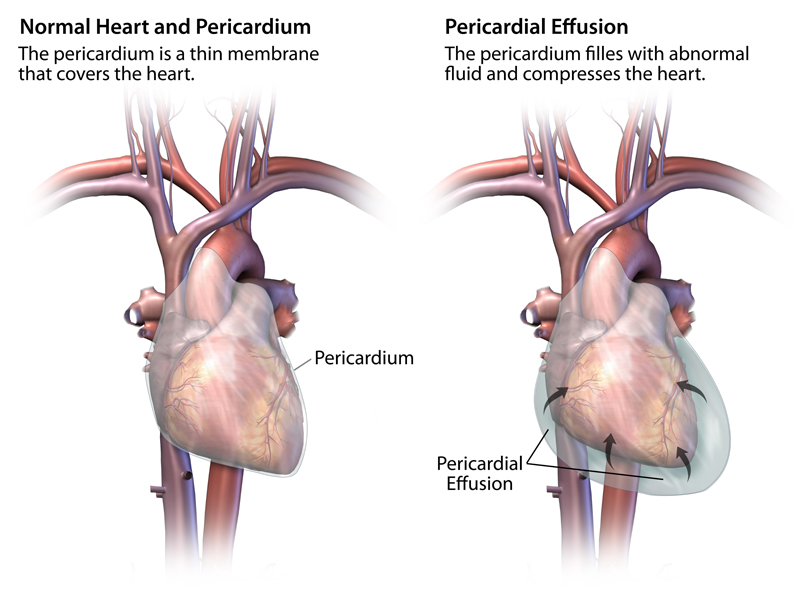Question:
I never had any cardiac problems until 6 months ago when I developed a large pericardial effusion which required the doctor to drain a liter of blood. Since then, I had tachycardia and elevated blood pressure. Echos, 24 hour monitor and a stress test have been normal. In August, I had a cardiac MRI which revealed continued pericarditis and delayed stage one emptying. I was put back on colchicine and ibuprofen to control the pericarditis. The middle of September, for the first time ever, I felt as if someone was inside my chest punching my sternum. My husband was able to feel the hard beat by touching my sternum. This lasted for about an hour when I went to the ER. An EKG and blood work were normal. Palpitations continued. I was put on a calcium channel blocker which has finally controlled the tachycardia. My resting heart rate went from 100 down to the low 80s and my blood pressure returned to my normal 112/70. I still have palpitations but less severe and less frequent.
I have had extensive testing by an immunologist and rheumatologist which indicates an underlying inflammatory condition. I have had high anion gap,IGE,ANC,RDW-CV,ABS mono, CRP , compliment 3&4, and low MCV,MCH since the effusion. No one can pin down what is going on. The immunologist suspects mast cell activation.
Why would palpitations suddenly develop?
Could continued pericarditis cause the tachycardia and elevated heart rate?
Is it possible that I may continue to have pericarditis for the rest of my life?
What are the implications/long term effect of long term pericarditis?
I had a large pericardial window which has prevented the return of the effusion.
I have had extensive testing by an immunologist and rheumatologist which indicates an underlying inflammatory condition. I have had high anion gap,IGE,ANC,RDW-CV,ABS mono, CRP , compliment 3&4, and low MCV,MCH since the effusion. No one can pin down what is going on. The immunologist suspects mast cell activation.
Why would palpitations suddenly develop?
Could continued pericarditis cause the tachycardia and elevated heart rate?
Is it possible that I may continue to have pericarditis for the rest of my life?
What are the implications/long term effect of long term pericarditis?
I had a large pericardial window which has prevented the return of the effusion.
Answer:
Hi Roxy,
Long term control of your pericarditis and pericardial effusion depends on successful treatment of the process that caused it. Pericarditis can result from one or more of these:
- A viral, bacterial or fungal infection
- Heart attack
- Cancer spreading from a nearby tumor in the lung, breast or the blood
- Radiation treatment
- Injury or surgery
- Sometimes it accompanies other diseases like rheumatoid arthritis, lupus and kidney failure.
During the active phase of the disease, a pericardial effusion may keep on recurring, and sometimes treatment includes creation of a “pericardial window” to drain the fluid away from the heart to one of the pleural cavities, where drainage is safer. However, this “window” may close off and the pericardium may need to be removed (called Pericardiectomy).
Except for 1 or 5, none of these causes apply to your situation. If the result of an “inflammation”, the condition usually “burns itself out”. It appears you have had all the right tests and treatments thus far, but you will need to be monitored carefully till you have fully recovered.
The arrhythmias are undoubtedly the result of the pericarditis.
Hope this helps,
Dr T

